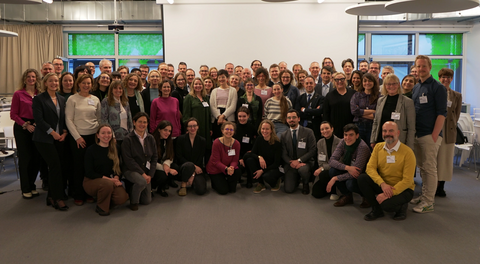Espoo holding leadership positions in European city networks

Espoo will lead two working groups in the city network Eurocities in 2024–2025: culture management, as well as innovation and entrepreneurship. In addition, the Culture Unit has been elected to chair the Cultural Cities Commission of the Union of the Baltic Cities (UBC).
In these city networks, cities learn good practices from each other, develop urban communities with EU funding and influence the European Union in matters concerning cities.
“The security situation in the Baltic Sea region has changed considerably. Right now, it is important to increase cooperation between cities in Northern Europe and strengthen our sense of solidarity through art, culture and cultural heritage. We want to be actively involved in building trust, not only between cities in the Baltic Sea region but also more broadly between European cities. Leading the cooperation of culture experts from Baltic Sea cities is an excellent opportunity for Espoo to promote the themes we have already been able to strengthen within Eurocities,” says Cultural Manager Tiina Kasvi.
Union of the Baltic Cities (UBC)(external link, opens in a new window) consists of 70 cities located around the Baltic Sea region. The aim of the union is, through sharing competence, networks and development projects, to maintain and develop safe and smart cities based on sustainable development in the Baltic Sea region. Espoo actively contributes to cooperation related to education, culture and youth.
In June, a meeting of the UBC Cultural Cities Commission will be held in Espoo in cooperation with the “Summer Summit 2024 – Yhteinen Itämeri (“our shared Baltic Sea”)” choir event of Tapiola Choir.
Promoting our goals in European cooperation
Eurocities(external link, opens in a new window) is a multidisciplinary advocacy and learning network of over 200 large and medium-sized European cities. The purpose of the network is to support the development of cities so that inhabitants of Europe can live good lives in a healthy and green environment. The network shares expertise, implements joint projects and contributes to ensuring that EU-level decision-making takes better account of cities’ perspectives. Espoo is actively involved in groups working on digitalisation, business, culture and the environment. Espoo has also contributed to causes such as supporting Ukrainian cities and promoting the UN’s Sustainable Development Goals, and in 2022, Espoo organised the network’sannual conference.
Under the leadership of Espoo, Eurocities’ working group for innovation and entrepreneurship will over the next two years focus on developing cities' competence in growing innovations into business and attracting of international talent and supporting their integration.
“In the current situation, growth-oriented companies, start-ups and scale-ups need more growth-generating services and solutions. This is one of the main themes of our working group. An example of concrete action is the acceleration of the internationalisation of companies so that they can get access to big markets and funds faster. Similarly, the path from research to business should be accelerated. The working group’s next steps are about learning and sharing, but also about joint projects and calls for proposals. At the same time, existing projects can be linked to each other effectively at EU level,” says Senior Planning Officer Heli Hidén from the Economic Development and Employment Unit.